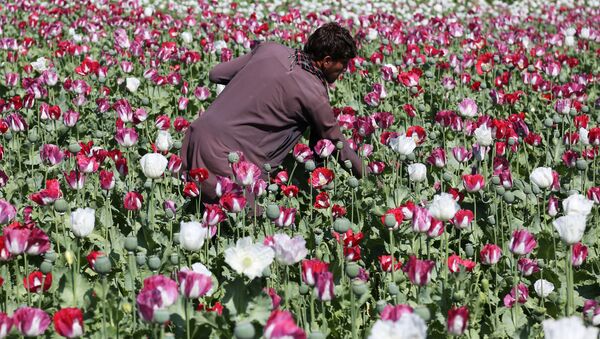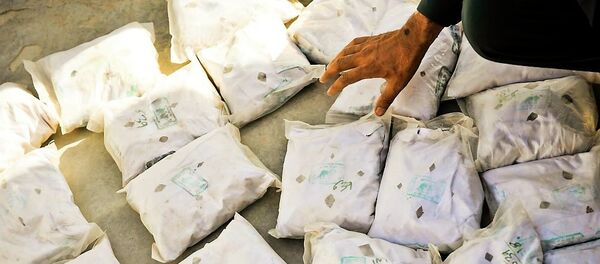Statistics obtained by the Guardian reveal that the firm, known as Academi since 2011, collected some 32% of the $1.8 billion in contracting money the Department of Defense has devoted to the job since 2002.
The $569 million Academi collected from American taxpayers is more than twice the amount claimed by its next closest competitor, defense giant Northrup Grumman, which made $250 million.
According to the US Special Inspector General for Afghanistan Reconstruction, the money paid for training, equipment, and logistical support to Afghan forces conducting counter-narcotics, such as the Afghan National Interdiction Unit, the Ministry of Interior, and the Afghan Border Police.
Rather than eradicate the deep-rooted opiate trade, the billions that the US has poured into Afghanistan over the last 13 years of war have contributed to the opium boom and lined the pockets of terrorists.
In December, the United Nations reported a 60% growth in Afghan land used for opium poppy cultivation since 2011. The estimated $3 billion value of Afghan heroin and morphine represents some 15% of Afghanistan’s GDP.
“Given the growth in opium poppy cultivation, it must be assumed that the Taliban’s income from the illegal trade in narcotics has remained an important factor in generating assets for the group,” the United Nations reported.
That same month, the US Special Inspector General for Afghanistan Reconstruction warned that a financial void would be created when international aid money exited with troops, and it would be filled with profits from the rising opium trade.
The inspector general also noted that improved irrigation, roads, and agricultural assistance created by US reconstruction projects were probably leading to the explosion in opium cultivation.
“[A]ffordable deep-well technology turned 200,000 hectares of desert in southwestern Afghanistan into arable land over the past decade,” the inspector general found, concluding that “much of this newly arable land is dedicated to opium cultivation.”
Afghanistan produces 90% of the world’s illicit opiates. According to the UN Office on Drugs and Crime, a record-breaking 224,000 hectares of opium was cultivated in 2014 – a 7% rise from the previous year.
As for Academi and its former Blackwater incarnation, the firms have an infamous history in Afghanistan. It once set up shell companies to disguise its business practices, according to a Senate report, so that its contracts would be unimpeded by company employees’ killings of Iraqi and Afghan civilians.
In 2007, the firm was providing protection for State Department employees in Iraq when its agents opened fire on civilians at Baghdad’s Nisour Square, killing or wounding 31 unarmed people.





